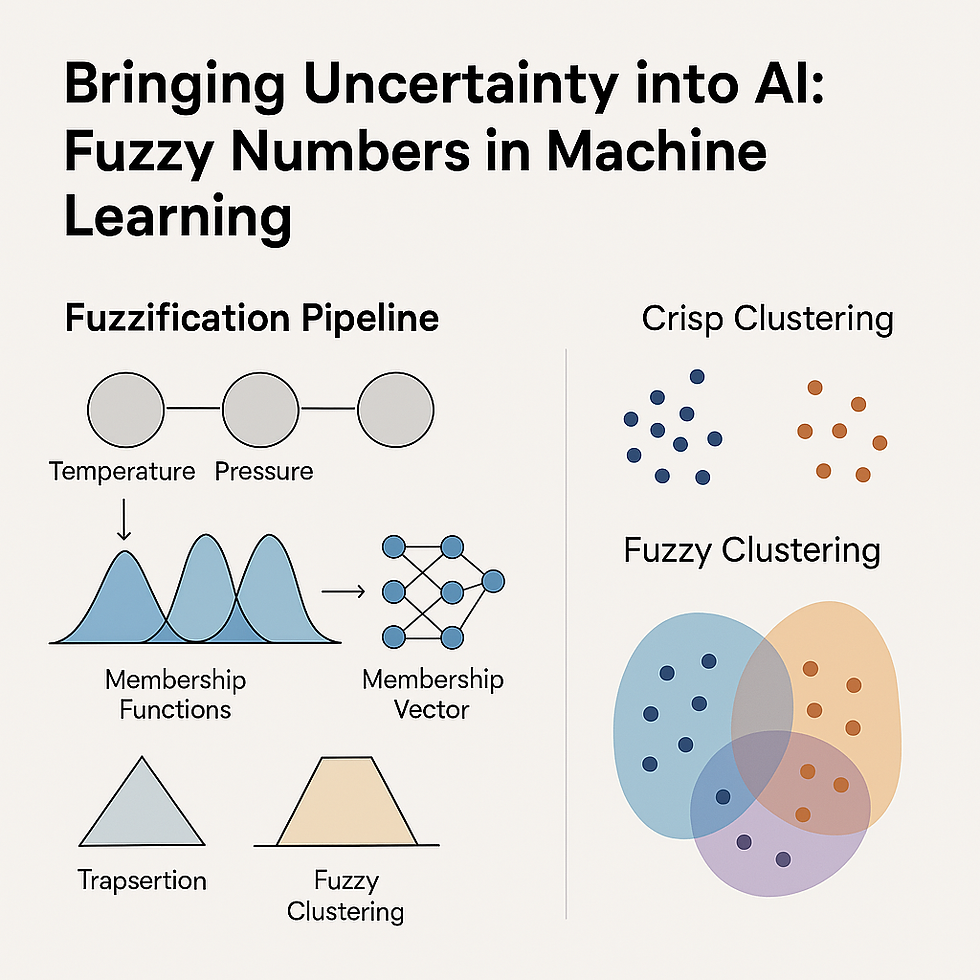🎲 When Data Misbehaves: A Monte Carlo Fuzzy Solution to Logistic Regression Failures
- Gnosis Analytics Crew

- Jul 3, 2025
- 2 min read
In real-world data—especially in medical, financial, and risk-sensitive contexts—things rarely go smoothly. What happens when your dataset is tiny, wildly unbalanced, or exhibits complete separation? Traditional logistic regression can collapse under these conditions, producing unstable estimates or refusing to converge. This impacts the models accuracy towards making any valid predictions about what we are trying to predict. That’s where our Monte Carlo fuzzy logistic regression framework steps in.
🧩 The Challenge: Data That Breaks the Rules
Imagine trying to predict a rare health event with limited records, or fraud cases that form just a fraction of your dataset. You face two big statistical monsters:
Class imbalance: One class dwarfs the other (e.g., 95% non-events vs. 5% events).
Complete separation: A predictor perfectly divides the outcome — something that sounds nice, but causes logistic regression to break entirely.
These conditions are common in high-stakes modeling and can derail critical analytics pipelines.
🌀 The Innovation: Fuzzy Thinking Meets Simulation
We designed a robust solution by merging fuzzy logic—which handles vagueness and partial truth—with Monte Carlo simulation, a tool for probabilistic sampling. This hybrid method injects flexibility into the modeling process, allowing it to gracefully navigate uncertainty and sparse data scenarios.
Here’s what we did:
Incorporated Triangular fuzzy numbers to represent predictor uncertainty.
Used repeated Monte Carlo simulations to estimate model parameters.
Built a classification system that is resilient, adaptive, and interpretable.
📊 Results That Matter

This fuzzy–Monte Carlo framework delivered:
Stable parameter estimates even under complete separation
Improved predictive accuracy in imbalanced datasets
A transparent method that can be adapted across domains—from biomedical analytics to fraud detection
🧠 Why It Matters
This method bridges the gap between classical statistical modeling and the real-world messiness practitioners deal with daily. It’s particularly valuable for:
Small-data environments
Rare event modeling
Decision systems that require interpretability alongside power
Working with datasets limited by imbalance and separation problems
📘 Published Work
This research appears in Information Sciences and adds to the growing arsenal of techniques aimed at making statistical models more robust, especially in uncertain or imperfect conditions.
Charizanos, G., Demirhan, H., & İçen, D. (2024). A Monte Carlo fuzzy logistic regression framework against imbalance and separation. Information Sciences, 655, 119893.






Comments